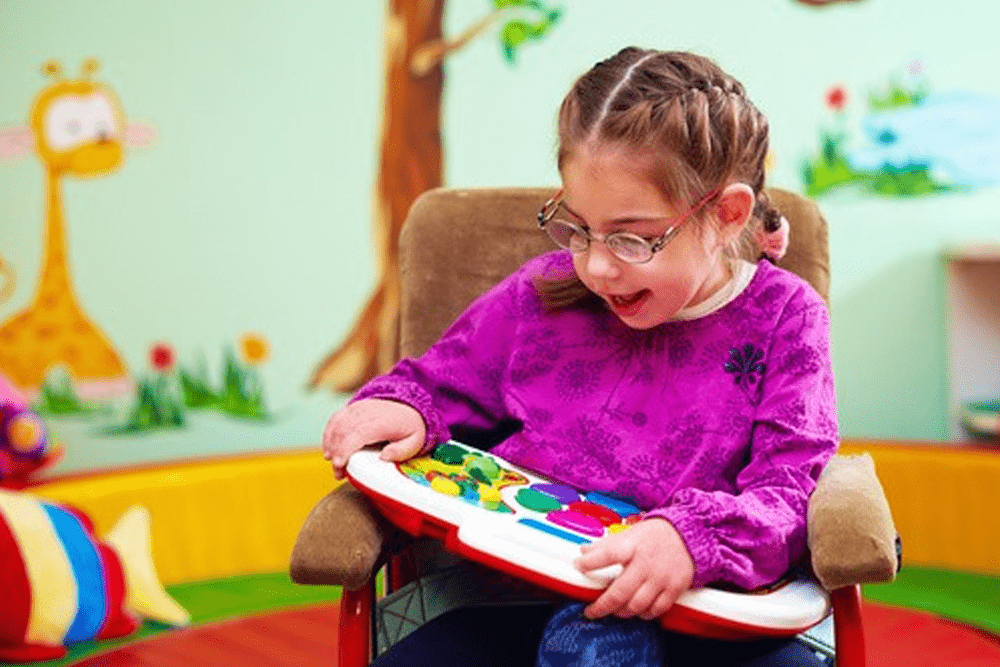In reality, it’s much of the support that is put in place to help your child achieve their best.
The term reasonable adjustments is often used in a quite general way to apply to all children with SEND. But in law, it’s specifically about the changes made to support a disabled child. Having said that, the term disability is quite a broad one (see the section below) and many children and young people who have special educational needs have a disability too.
Reasonable adjustments come in all kinds of shapes and sizes, depending on a child’s needs. They include making changes to things like uniform and behaviour policy to meet the needs of a child, as well as the kind of support offered day-to-day in school.
You can find this information, plus information about what SEN support is, planning and giving SEN support and specialist support in our booklet SEN Support in schools: A guide for parents and carers.

Many children and young people who have special educational needs may have a disability too.
The Equality Act 2010 says that someone has a disability if they have:
‘A physical or mental impairment, which has a long-term and substantial adverse effect on their ability to carry out normal day to day activities’.
Long-term means it’s lasted a year or more. Substantial means it’s not minor or trivial. For example, it takes much longer than it usually would to complete a task like getting dressed.
 Disabilities include:
Disabilities include:
The Equality Act 2010 also sets out the legal duties that schools, early years providers, colleges and local authorities and others have towards disabled children and young people. These include eliminating discrimination and making sure that children with a disability have the same opportunities as those who do not.
It includes one about reasonable adjustments:
“They must make reasonable adjustments, including the provision of auxiliary aids and services, to ensure that disabled children and young people are not at a substantial disadvantage compared with their peers. This duty is anticipatory – it requires thought to be given in advance to what disabled children and young people might require and what adjustments might need to be made to prevent that disadvantage.”
There are three parts to the legal duty to make reasonable adjustments. That means a school or other education provider, or the local authority must make adjustments in all three of these areas if needed.
Reasonable adjustments aren’t just for children with an Education, Health and Care (EHC) plan. Children and young people with SEND who are getting SEN support should have reasonable adjustments made for them too.
A child does not need to have a diagnosis for reasonable adjustments to be made. Changes made in nursery, school and college should be based on the needs of each individual.
Making reasonable adjustments is a great way for a child, their parents and staff to work together to find solutions that really work. Talk to school staff about what works well at home – for example, what comforts your child and helps them to calm down. So, offering a soft toy to cuddle or a chance to step out of class for a hot chocolate when things aren’t going well can show a child that they’re understood.
The legal duty to make reasonable adjustments means a school should take positive steps to make sure that disabled pupils can:
Many reasonable adjustments cost little or nothing and instead mean a change in practice rather than expensive pieces of equipment or extra staff.
Making changes to support at school is more likely to work if it’s going at a pace your child can manage. Often, going slowly and being successful with one adjustment before moving to the next works best. If things go wrong it’s a smaller step to go back and start again from when it worked.
A school’s duty to make reasonable adjustments is an anticipatory one. Anticipatory means that schools need to think in advance about what a disabled child might need, and what changes may need to be made for them.
In making decisions about reasonable adjustments, the best place to start is with the child or young person themselves. They are the expert in their own needs (alongside their parents, for many). By listening to what your child is saying and checking in with them to see you have understood, you may well be able to come up with creative solutions that aren’t on any checklist.
Every child and young person is different and what works for one may not work for another. This might sound obvious, but sometimes when checklists and policies are drawn up and used, this can get lost.
Though it may not always be practically possible to do what a child or young person feels is right for them, it’s important for them to know why it’s not possible. This helps them feel listened to and understood, even if they are disappointed with how things turn out.
‘Reasonable’ isn’t defined in law. So there is no clear line that says what would be considered reasonable and what wouldn’t. What it comes down to is individually deciding whether something is reasonable for a school or local authority to do, or not.
For small things, that’s unlikely to be an issue. Things like using a laptop to record work or having a quiet place to go during break are straightforward. For bigger or more costly adjustments, some discussion will be needed. Schools and local authorities can say no. Where a school or local authority decides that there are no reasonable steps that it can take, it should say why.
It’s not possible to say what would be reasonable in any specific situation, but there are some factors that will be thought about when any major decision is made. These include:
Sometimes a parent or child’s idea of what seems like a reasonable adjustment can be very different from what school staff think is reasonable. This kind of misunderstanding is common, so it’s a good idea to keep review things and try and keep the discussions positive and constructive. If you find you are coming from two very different points of view, try and work to find a middle ground, or ask if something can be tried for a while to see if it works.
 For reasonable adjustments to work well, they should be child-led. That means, whenever possible, your child or young person should be involved in helping to decide what support and changes are needed.
For reasonable adjustments to work well, they should be child-led. That means, whenever possible, your child or young person should be involved in helping to decide what support and changes are needed.
We know from what children and young people have told us, that putting into action what has been discussed and agreed is vitally important. Where things aren’t followed through it’s easy for trust to breakdown.
This is what children and young people have told us:
Many of these are real life examples of reasonable adjustments that nurseries, schools and colleges have made, and which parents have shared with us. Others are ideas that have come directly from children and young people themselves.
They can give you a starting point for a discussion with your child and with school staff. They won’t be suitable for every child.
Please remember, it’s not an exhaustive list. There is lots of room for creativity and of course the changes that need to be made for any child are led by their individual needs. If you have examples of reasonable adjustments that worked well for your child – please tell us so that we can share!
We all have ‘bad’ days when we find it more difficult to stay emotionally in control and calm. Sometimes I may not always get things right or know what I should be doing.
But if I am learning and not stopping others from learning, do some of the smaller things matter?
For example:
Starting a new school or returning after an absence can be a real challenge. I may need time to adjust to new routines. Go at my pace.
Some suggestions:
Let me be comfortable if it means I can learn.
Clothes can affect my sensory needs and how I’m feeling. Some materials and items of clothing can give me comfort and reassurance. The weight, how they feel and how they let me move can be really important to how I feel.
Some materials and clothing can cause me such discomfort they distract from everything else. Have you ever turned down your radio to help you concentrate on driving?
Some suggestions:
Help me feel safe and emotionally in control so I can learn. Classrooms are busy places full of sensory stimulation. Some sensory things can be overwhelming so talk to me about what I think helps me learn best.
Some suggestions:
Help me be confident in my abilities. If I’m constantly feeling anxious or am always on the alert for threats because I’m not sure what to expect, I won’t be able to learn.
Some suggestions:
Set me up for success so I can do the best I can. Please talk to me about what I think could help me. Before GCSE’s and other national exams let me practise the arrangements in mocks or end of year school exams. That way I’ll get to know what works best for me, and I’ll be prepared. This might help me perform better.
Some suggestions:
Page reviewed: April 2024
Page due for review: April 2026
DiAS (Devon, Information, Advice and Support) supports children and young people aged 0-25 with special educational needs and disabilities (SEND), and their parents and carers.
Helpful links
Contact us
Legal
© 2025 Devon Information Advice & Support
Searching...